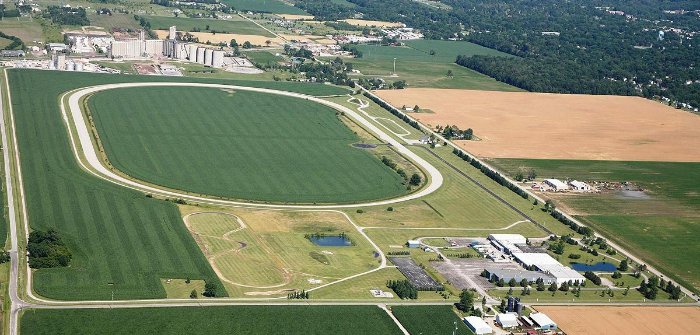Upon opening in October, the 60-acre Michigan site will accelerate development of the Toyota Guardian vehicle automation mode.
The Toyota Research Institute (TRI) is constructing a closed-course test facility to develop automated vehicle technology. Construction permits have been filed to transform an approximately 60-acre site at Michigan Technical Resource Park (MITRP) in Ottawa Lake, USA. When it becomes operational this October, the new site will be used exclusively by TRI to safely replicate demanding “edge case” driving scenarios, too dangerous to perform on public roads.
The TRI facility will be constructed inside MITRP’s 1.75-mile (2.8km) oval test track. It will include congested urban environments, slick surfaces and a four-lane divided highway with high-speed entrance and exit ramps.
Leasing the land from MITRP, TRI is responsible for design, construction and ultimate maintenance of the facility. “By constructing a course for ourselves, we can design it around our unique testing needs and rapidly advance capabilities, especially with Toyota Guardian automated vehicle mode,” said Ryan Eustice, TRI senior vice president of automated driving. “This new site will give us the flexibility to customize driving scenarios that will push the limits of our technology and move us closer to conceiving a human-driven vehicle that is incapable of causing a crash.”
TRI will also have access to the oval track and other onsite facilities and services, which are owned by MITRP and provided to all its customers. This new site expands TRI’s closed-course testing capabilities, adding to partnerships with GoMentum Station in California, and Mcity and the American Center for Mobility in Michigan.
The MITRP site has been a vehicle proving ground since 1968 when it was created by a tier-one automotive supplier. The 336-acre technology park was sold to a private developer in 2010, and it now operates as a venue available to the automotive, commercial vehicle and mobile off-highway vehicle builders and component suppliers for testing and advanced engineered technology development.


